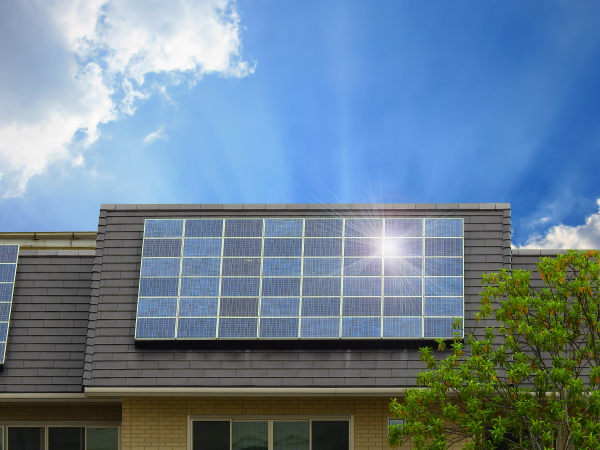
Consumers across America are feeling the sting of rising prices, from the grocery store to the gas pump. Many of these higher costs are obvious; but some remain hidden. Like the $40 million in higher electric bills 99% of Florida customers pay at the expense of the 1% of customers who can afford home solar panels.
We should not pay our neighbor’s power bill. Especially when the buck is being passed from wealthier customers to fixed-income seniors and low-income and minority communities. This issue of fundamental fairness warrants Florida policymakers’ attention.
I first learned of the controversy earlier this year when a small Florida city, Green Cove Springs, took up the issue of home solar compensation rates. Upon further reading, I found the Jacksonville Electric Authority also revised its rules in 2018. Last year, the Florida Public Service Commission (PSC) held a workshop to review and receive feedback on the issue.
Under the state’s 2008 home solar compensation rules, excess electricity generated by home solar panels is credited at the same rate utilities receive for powering homes. Those credits count against a customer’s monthly bill, resulting in very low or even $0 bills. The problem is home solar users provide only a fraction of the services utilities do.
Whereas rooftop solar customers generate excess electricity, utilities generate, transmit, and distribute electricity, in addition to maintaining, repairing, and upgrading the electric grid. While utilities must supply reliable energy continually, rooftop solar panels are intermittently reliable based upon the weather and often generate excess electricity when the energy is least needed by utilities.
A fairer system would compensate home solar users only for the cost of the electricity the utility purchases from them. I may be old – and old fashioned – but the value of home solar credits should reflect the value of the costs actually avoided.
After all, someone has to pay for maintaining, upgrading, repairing, distributing and transmitting energy since home solar users do not under today’s compensation rules.
As is often the case, these hidden costs of home solar are borne by fixed-income seniors and the poor, who are disproportionately minority communities, at the expense of higher income earners.
Most Floridians cannot afford to install solar panels at home, let alone pay more on their power bills for the benefit of wealthier families. EnergySage.com estimates the average cost to install home solar in Florida is $13,050. Meanwhile, the average Floridian’s income is $51,000.
The Lawrence Berkeley National Laboratory found the median income of home solar adopters to be $113,000, compared to $64,000 for all homes. That is just not affordable for most families, especially when surveys show half of Americans live paycheck-to-paycheck. Indeed, the US Energy Information Administration found one-third of Americans reported hardship with paying their electric bills. And the US Department of Labor found the poorest Americans spend 17 times more of their income on utility bills than the wealthiest.
While I have pointed out some flaws with home solar, I believe it is a wonderful innovation that anyone should have the freedom to pursue. Florida now leads the southeastern United States in solar and ranks fourth nationally in solar generation capacity. Large scale utility and community solar projects allow everyone to benefit from solar without shifting costs from wealthier customers to the poor.
States around America, both red and blue, are reviewing their home solar compensation rules to address issues of fairness and inequality. I believe Florida policymakers must do the same. It is wrong for struggling seniors, low-income, and minority families to pay more for electricity to keep their wealthier neighbors’ lights on.

Author Bio: John Grant, former State Representative, and State Senator, an estate planning attorney, and a member of the National Senior Citizen Hall of Fame, has spent much of his career working on behalf of seniors. John is continuing the advocacy work by heading a new venture called Seniors Across America to continue speaking up for our elderly population.
Website: Seniors Across America
You can reach John at: john@seniorsacrossamerica.net













Electric rates are going up, but it’s not because of people who own rooftop solar. The idea that solar owners are being subsidized by everyone else is just plain false. Solar owners pay the same fees for using the grid as non solar owners do. These fees include:
Customer charge
Gross receipts tax factor
Fuel cost recovery factor
Franchise fee equivalent
Electric utility tax
What solar owners don’t pay for is electricity, because they produce their own.
And the idea that most people can’t afford solar is also inaccurate. $0 down financing for rooftop solar systems is readily available. You don’t have to pay cash to put solar on your roof anymore, there are a plethora of loan options.
The reality is people are already buying electricity. Solar enables them to pay less for electricity and lock into a monthly electric bill that will never change.
So in terms of affordability, rooftop solar is a better option for all people, old, young, rich, poor, white, black.